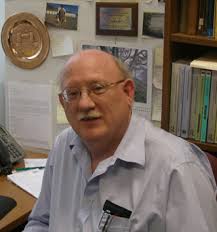I explained in a 2012 column as soon as Thomas Curry was publicly identified as the likely new head of the Office of the Comptroller of the Currency (OCC) why he was such a poor choice to be a regulatory leader. Curry is such a good example of Obama’s crew of failed agency heads because he is neither evil nor stupid. As I explain below, he views morality as a misnomer in banking. He is the rarity among Obama appointees, a true professional regulator. He is well within the top 50% of Obama’s (dismal) appointees in finance and regulation.
Curry is also an abject failure who should be cashiered immediately. No one had to order him to fail or intimidate him into failure. He represents anti-regulation as usual, which has been the pattern in finance since 1993. One can read his speeches and see that he has learned none of the essential lessons from the crisis and lacks even a dying ember in his belly, much less the raging fire required for regulatory success. We know from his record of failure as an FDIC director from January 2004 throughout the crisis that had he been the top federal regulator in the savings and loan debacle rather than Ed Gray cost of the debacle would have grown to trillions of dollars. At that level it would have hyper-inflated real estate bubbles and likely caused a severe recession.












